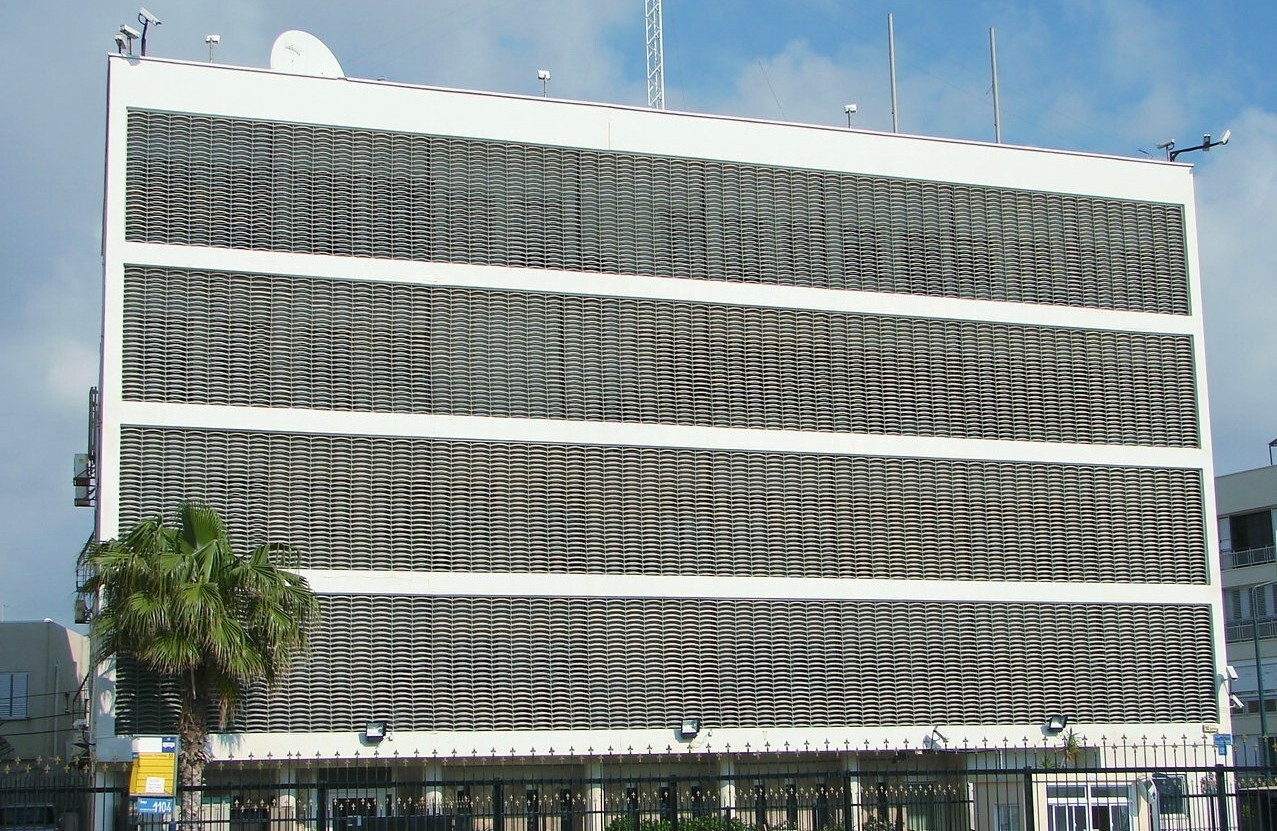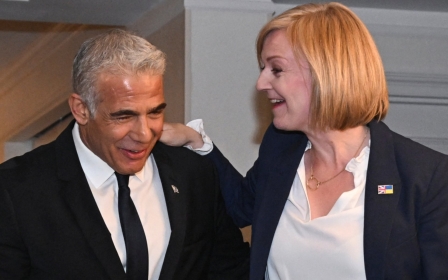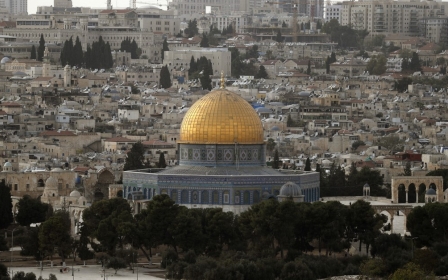UK embassy: Full text of briefing note sent to Tory MPs

Editor's Note: The following is the text of a briefing note sent out by Conservative Friends of Israel, a pro-Israel lobby group, to Conservative members of parliament on 30 September along with a "suggested casework response" ahead of this week's party conference as part of a campaign in support of Prime Minister Liz Truss’s decision to review the location of the British embassy in Israel.
Key Points
-
Prime Minister Liz Truss recently pledged to review the location of the British Embassy in Israel. She said: “I understand the importance and sensitivity of the location of the British Embassy in Israel. I’ve had many conversations with my good friend Prime Minister Lapid on this topic. Acknowledging that, I will review a move to ensure we are operating on the strongest footing within Israel”.
New MEE newsletter: Jerusalem Dispatch
Sign up to get the latest insights and analysis on Israel-Palestine, alongside Turkey Unpacked and other MEE newsletters
-
Currently, the UK’s Embassy to Israel is situated in Tel Aviv, while the British Consulate to the Palestinians is located in East Jerusalem.
-
It has long been customary for sovereign countries to choose their capital city and for embassies and other diplomatic offices to be located there.
-
It is understood that the UK Government already owns land in West Jerusalem for an embassy to be built there.
-
The State of Israel’s main institutions are all located in Jerusalem, including its Parliament, government ministries, Supreme Court and the residences of both the Prime Minister and President. UK diplomats arriving in the country will receive their credentials from the President in Jerusalem and throughout their service will routinely hold meetings in the city.
-
Efforts to secure a lasting peace agreement and a viable and prosperous Palestinian state will continue.
-
At its core, a move to relocate the British Embassy to Jerusalem would be a bureaucratic one that recognises the reality on the ground. It would not preclude the Palestinians from establishing their capital in East Jerusalem in the future, nor would it alter the UK’s longstanding view that the future status of the city is an issue that must be negotiated between the Israelis and Palestinians in bilateral negotiations.
-
Under any realistic two state solution, West Jerusalem would remain under Israeli rule – this has been long-accepted in peace negotiations between Israelis and Palestinians over decades.
-
The United States has formally recognised Jerusalem as Israel’s capital and moved its embassy there,as have Taiwan, Nauru, Honduras, Guatemala, and Kosovo. Australia and Russia have both recognised West Jerusalem as the capital.
-
The ground-breaking U.S.-sponsored Abraham Accords were negotiated following the U.S. relocating its Embassy to Jerusalem.
Background
-
Jerusalem is the capital of Israel and holds a unique status for the nation as the religious, national and cultural centre of the Jewish people for 3,000 years.
-
In the 10th Century BCE, King David conquered Jerusalem, making it his capital. For centuries, Jerusalem was the capital city of Jewish kingdoms. With the establishment of the State of Israel in 1948, Jerusalem once more became the capital of a sovereign Jewish state.
-
Following the War of Independence of 1948, an armistice was agreed at what is today called the‘Green Line’. It was expressly agreed by all parties (Israel, Egypt, Jordan, Syria and Lebanon) that this armistice line was not to be treated as a border, and the Green Line has never been internationally recognised as a border. The 1949 Armistice Agreements gave Israel control of West Jerusalem, and Jordan control of East Jerusalem.
-
In 1950, Jordan annexed the West Bank, including East Jerusalem, and denied Israeli Jews access to holy Jewish sites including the Western Wall in violation of the 1949 agreements. East Jerusalem includes Jerusalem’s Old City and the holiest sites in Judaism, Christianity and Islam.
-
After being attacked from all sid
es in 1967, Israel captured East Jerusalem, reunifying the city. -
Despite the centrality of the site for Jews, after capturing the Old City and reuniting Jerusalem in 1967, Israel left the administration of the Temple Mount under the authority of the Islamic Waqf council, and control is given to each religious authority over their respective holy sites.
-
The Temple Mount is the holiest site in Judaism, where the two destroyed Jewish Temples were located, and the complex contains the Dome of the Rock as well as the al-Aqsa Mosque, which is considered to be the third holiest site in Islam.
-
Israel is committed to maintaining the status quo of the holy sites, with Christian and Muslim worshippers free to practice their faith at the city’s (and country’s) many important religious sites.
Middle East Eye delivers independent and unrivalled coverage and analysis of the Middle East, North Africa and beyond. To learn more about republishing this content and the associated fees, please fill out this form. More about MEE can be found here.




